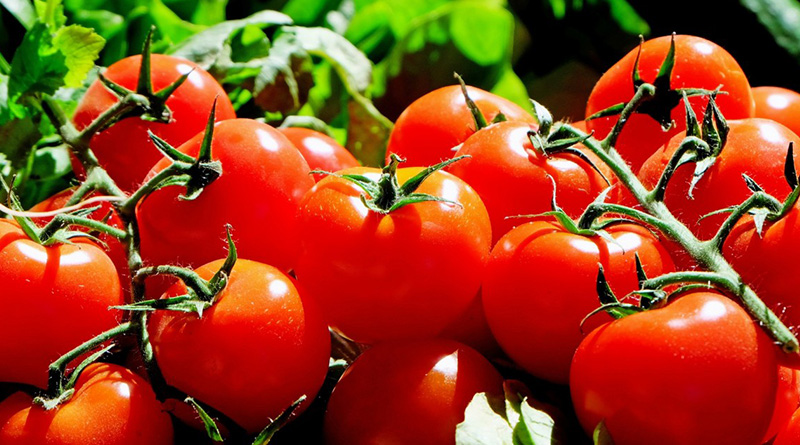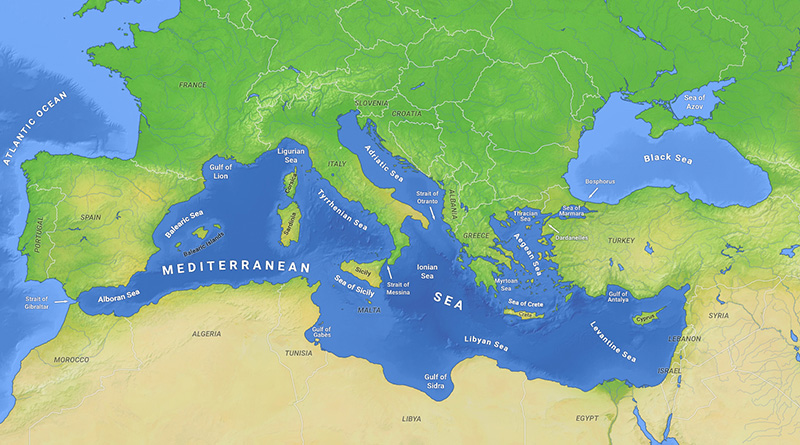Why adopting the Mediterranean diet could be the best thing you ever do
Last month it was revealed that Spain is now the healthiest country on the planet, closely followed by its Mediterranean neighbours, Italy. In just 20 years, Spain is expected to have the highest life expectancy across the globe as people prepare to live until they are a staggering 86-years-old.
Whilst their longer lives are a result of many different lifestyle choices, researchers believe that the Mediterranean diet is a big reason for the country's inhabitants living longer.
With its health and psychological benefits, its positive environmental impact, and improved sporting performance, the diet is one that is being increasingly used by people, towns and countries everywhere. So what actually is it and why is it supposedly so healthy?
The term Mediterranean diet is generally thought of as one diet for all countries that border its namesake sea. However, it is a lot less simple than that as all 16 countries eat in their own unique way, yet they all share the diet's main patterns.
Foods that all make up a significant portion of its pattern include fruit and vegetables, starch, fish and olive oil, with minimal dairy and wine just as important in achieving its dietary purpose. Red meat is also eaten sparsely - perhaps once or twice a month, and it is these choices that nutritional therapist Elizabeth Houston says demonstrate why it is so good to adopt into a person's life because it can lower the risk of developing so many illnesses.
"The Mediterranean diet often tops the list of healthiest diets in the world," Houston said. "Numerous studies have linked the benefits of such diet to lowered incidence of cancer, heart disease, Parkinson's disease and Alzheimer’s. There are many aspects that make this diet super healthy, most notably it is packed with a variety of different coloured vegetables, each providing different powerful antioxidants and plant nutrients, such as lycopene, which has been linked with lowering the risk of certain cancers."
Replacing herbs and spices instead of salt to add flavour, and eating proteins like beans and pulses instead of sugary snacks are just two examples that locals in the Mediterranean often do for healthier eating alternatives. These diet choices are said to play a huge role in explaining why this demographic have a much lower chance of being diagnosed with fatal illnesses like blood clots than people in the UK do.
A study by universities at East Anglia, Aberdeen and Cambridge in 2018 asked participants how closely they followed the Mediterranean diet after recording their daily food intake for 17 years. Those investigating found that a Mediterranean-style diet reduces the risk of a stroke by a staggering 17 percent. Its low saturated fat means that cholesterol is reduced and this means that you are far less likely to be hit with diseases like atherosclerosis, because you are instead ingesting healthy high monounsaturated fats.
Foods such as nuts and legumes are consumed daily and their antioxidant properties include vitamins A & E - both of which are believed to help fight infections, as well as improve heart health and protect cells from damage.
Found in foods like olive oil and nuts, these are believed to reduce inflammation because they contain a host of body-repairing nutrients that mean a person's calorie intake doesn't go over its recommended limit with unhealthy fats, ensuring your body stays agile and at a healthy weight. These health benefits are undoubtedly the core reason why following the Mediterranean diet should at least be observed to some degree by everyone, and explains why it is becoming attractive to all races, ethnicities and age groups - what the foods in it don't contain is similarly just as beneficial as the nutrients that it does, something else echoed by Houston.
"The diet is also full of heart healthy fats from nuts, avocados oily fish and olive oil providing the associated health benefits such as a reduction in inflammation. Equally important to remember is what this diet doesn’t include - this way of eating is low in refined sugars, processed fast food and relativity low in red meat."
However, many foods are healthy that aren't from the Mediterranean, so what else makes this diet so appealing? Apart from its medical gains, the diet is also proven to be good for the brain psychologically too.
Numerous studies like the one performed by four universities in England, Spain, Australia and France found that of the 36,556 people involved in the research, those who ate a diet closest to the Mediterranean diet were 33% less likely to get depression symptoms. The growing link between an effectively plant-based diet and a happier and healthier lifestyle seems to have a lot of merit and truth behind it, because results like this are becoming ever more prevalent.
This apparent lower risk of developing depression is also believed to be related to the family interaction and harmony that is created when natives eat in the Mediterranean. Labelled by many as 'family time,' people across the area often sit in groups with relatives and friends, something that nutritional therapist Jody Middleton says is the area's way of life.
She said: "I do believe the healthiest diets are the most simplistic and therefore the most natural. We in the UK could learn a lot from the Mediterranean diet - not just the food, but the way of life alongside it. It brings family and friends together. Food is cooked from scratch every day, families sit at big tables without any screens present and enjoy each other’s company.
Conner Middelmann
The Mediterranean Diet also reduces the environmental impact of food production, transportation, storage and consumption. Most foods eaten as part of the diet are grown locally, thus reducing the environmental burden of long-distance transportation.
"This is so important for good health as digestion starts from the moment we think about cooking our meal, not just the process of eating it. The nature of sitting down and not rushing your food also means you tend to eat less, and you enjoy what you are eating rather than rushing through it in your five-minute lunch break and then having indigestion not long after."
This way of eating is more natural for the body, and it means that it can function in a way that is more balanced because it isn't being rushed or abused by lazy eating and snacking. The careful planning of a diet is one that is undertaken by sportsman across the world, and so its all-round use from locals in countries like Spain and Italy mean they are constantly and naturally benefiting from a diet that is employed by athletes.
So not only are Mediterranean's reaping better intellectual function, they are also enjoying a long-term reward in the form of a longer life without changing any of their normal eating habits. Foods such as nuts and legumes are consumed daily and their antioxidant properties include vitamins A & E - both of which are believed to help fight infections, as well as improve heart health and protect cells from damage.
The fact that athletes from these areas participate in the diet automatically before even training, emphasises its use in recreational activities too - a study by St Louis University went as far as finding that eating the diet for just four days can boost your endurance performance. Holistic nutritionist Sam Ogunpehin focuses on helping women achieve balance and wellbeing, and she believes that these antioxidants help athletes because they improve their endurance with their anti-inflammatory properties.
She said: "Many of the foods in the Mediterranean diet contain nitrates and powerful antioxidants that naturally have anti-inflammatory and alkalizing properties. Whole foods, rather than capsules, contain antioxidants in natural ratios and proportions, which act in synergy to optimise the antioxidant effect. To get the highest amount of nutrient value from these foods, organic and local is best. They are effective for improving endurance exercise performance and the best tool to prevent and reduce oxidative stress associated with this type of physical exertion on the body."
The way that these foods are so powerful in making your body stronger is why the diet is being adopted by other countries. But its long-term prosperity doesn't end with just humans. Mediterranean foods are often grown organically and consumed naturally too, making them environmentally friendly. If this diet were embraced by so many more cultures, its benefits would be endless for our planet as well.
Author Conner Middelmann said: "The Mediterranean Diet also reduces the environmental impact of food production, transportation, storage and consumption. Most foods eaten as part of the diet are grown locally, thus reducing the environmental burden of long-distance transportation. Foods are adapted to the climatic and geographical conditions of the region in which they grow, reducing the need for extensive watering, fertilizing and pesticide use."
With the issue of climate change arising more frequently, environmentalists and governments too could learn a lot from the way that Mediterranean's eat. No matter what country you come from or what diet you currently eat, incorporating a diet that aids your health, makes your brain stronger, improves your athletic performance and prevents any environmental damage seems like a way of life at least worth trying.



